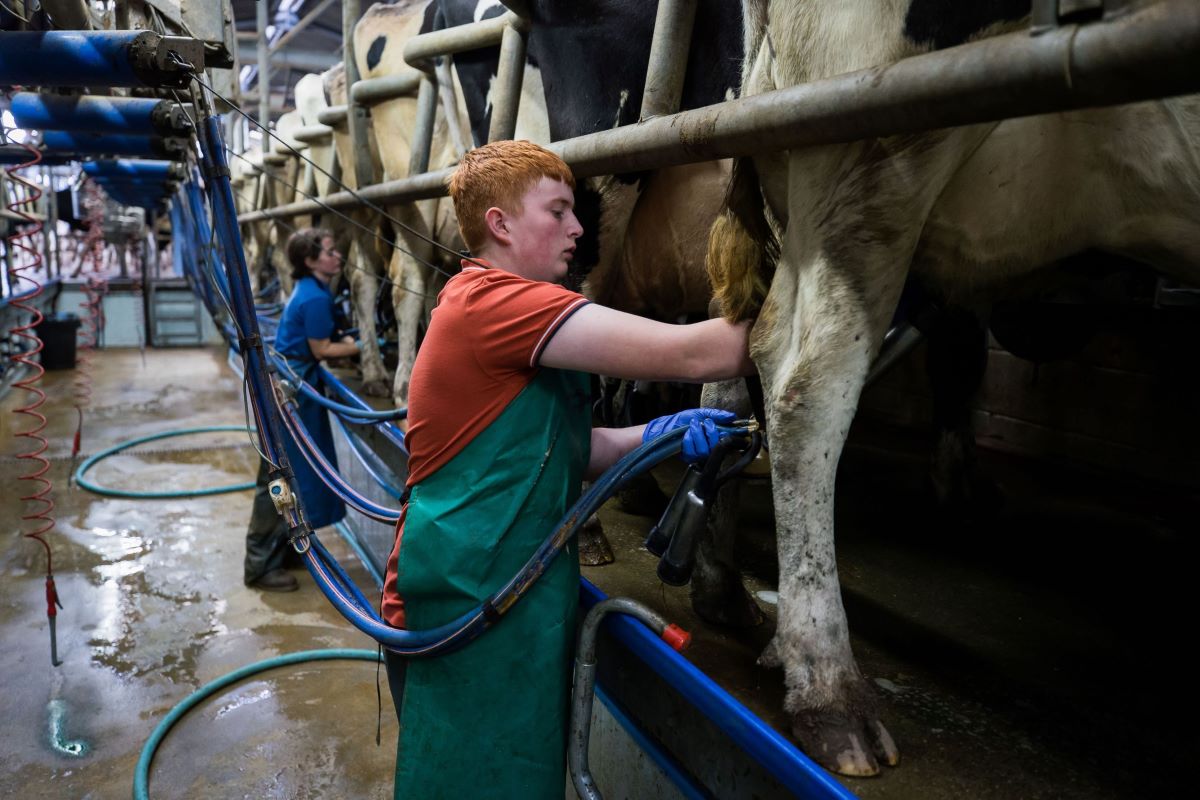Removing tax exemptions from private schools likely to have little effect on numbers in the private sector, raising £1.3–1.5 billion in net terms

Labour have committed to remove tax exemptions from private schools, including exemptions from VAT and relief on business rates. We estimate that this would raise tax revenues by about £1.6 billion. With a small movement of pupils into the state sector, costing perhaps £100–300 million a year, this would lead to a net gain to the public finances of £1.3–1.5 billion.
The evidence suggests that putting VAT on private school fees would have a relatively limited effect on numbers attending private schools – perhaps a reduction of 3–7% in private school attendance. Even that reduction would have limited impact on tax revenues as money not spent on school fees would likely be spent on other goods and services on which VAT would be payable. If some pupils do move to the state sector, extra school spending of about £100–300 million per year is likely to be required in the medium to long run. But it should be remembered that pupil numbers in the state sector are expected to fall dramatically over the next decade and state schools might therefore welcome extra pupils moving from the private sector.
Combining these estimates, we estimate that Labour’s proposals will raise an extra £1.3–1.5 billion per year in the medium to long run. This would allow for about a 2% increase in spending on schools in England, which Labour have proposed would be targeted at disadvantaged students.
These are some of the key findings of a new report, ‘Tax, private school fees and state school spending’, published today by the Institute for Fiscal Studies and funded by the Nuffield Foundation.
Other key findings include:
- The share of pupils in private schools has been constant at about 6–7% for at least the last 20 years despite a 20% real-terms increase in average private school fees since 2010 and a 55% rise since 2003.
- The gap between average private school fees and state school spending per pupil has more than doubled since 2010. In 2022–23, average private school fees across the UK were £15,200 in today’s prices (net of bursaries and scholarships). This is 90% higher than state school spending per pupil, which was £8,000 in 2022–23. In 2009–10, the gap was about 40% or £3,500.
- Removing tax exemptions is likely to raise £1.6 billion in extra tax revenues. This results from an effective VAT rate of 15% after allowing for input deductions, likely VAT on boarding fees, exemptions for fees paid by local authorities for pupils with special educational needs and reduced VAT revenues from spending on other goods and services as parents cut back in order to finance increases in fees. It also includes extra revenues from business rates.
- Falls in private school numbers are likely to be small. The (limited) evidence on the determinants of the demand for private schooling suggests that the effects of fee rises are quite weak. In the short run, the effect might be especially small as few parents might opt to take their children out of a school part-way through primary or secondary school and many may be reluctant not to give younger children the same education as their older siblings. The effects might be larger over the medium to long run. Our best judgement is that it would be reasonable to assume that an effective VAT rate of 15% would lead to a 3–7% reduction in private school attendance. This would likely generate a need for about £100–300 million in extra state school spending per year in the medium to long run
- Tax revenues are in any case unlikely to be affected by any reductions in private school demand. If there is a fall in demand for private schooling, VAT revenues on private school fees would drop. However, this would likely be largely made up for by higher VAT revenues from increased spending on other goods and services.
- Combining estimated tax revenues and extra public spending needs, our view is that it would be reasonable to assume a net gain to the public finances of £1.3–1.5 billion per year in the medium to long run as a result of removing tax exemptions from private schools.
Luke Sibieta, IFS Research Fellow and author of the report, said:
‘Labour’s proposals to remove tax exemptions are likely to raise an extra £1.3–1.5 billion after allowing for exemptions, deductions and extra school spending to cater for any pupils moving to the state sector. The evidence suggests higher fees are likely to have a weak effect on demand.
‘As it is, we expect that the change in private school attendance levels will be small. This leads to surer increases in tax revenues and less need for additional public spending on state schools. If the main aim of removing tax exemptions from private schools is to raise revenue, then this is likely to be achievable. If the aim is to encourage more pupils into the state sector and reduce inequalities by school attended, then this policy package is likely to have only minor impacts.’
Josh Hillman, Director of Education at the Nuffield Foundation, said:
‘This timely analysis shows that the combination of levying VAT on fees and the tax exemptions associated with removing charitable status from private schools would raise a small but potentially worthwhile sum of money for use in state education. However, to make a significant contribution to reversing the widening gap in achievement between advantaged and disadvantaged pupils, a wealth of other research suggests it would need to be spent carefully on well-targeted funding streams and evidence-based programmes and practices.’
Sector Response
Bridget Phillipson MP, Labour’s Shadow Education Secretary, said:
“This analysis reinforces the fact that that all of Labour’s policies are fully-costed and fully-funded, because we take fiscal responsibility seriously.
“The Conservatives have crashed the economy and have no plan for growth which will mean we face tough choices in government.
“Labour will fund our fully-costed plans to drive high and rising standards in our state schools by ending private schools’ unjustifiable tax breaks.”











Responses